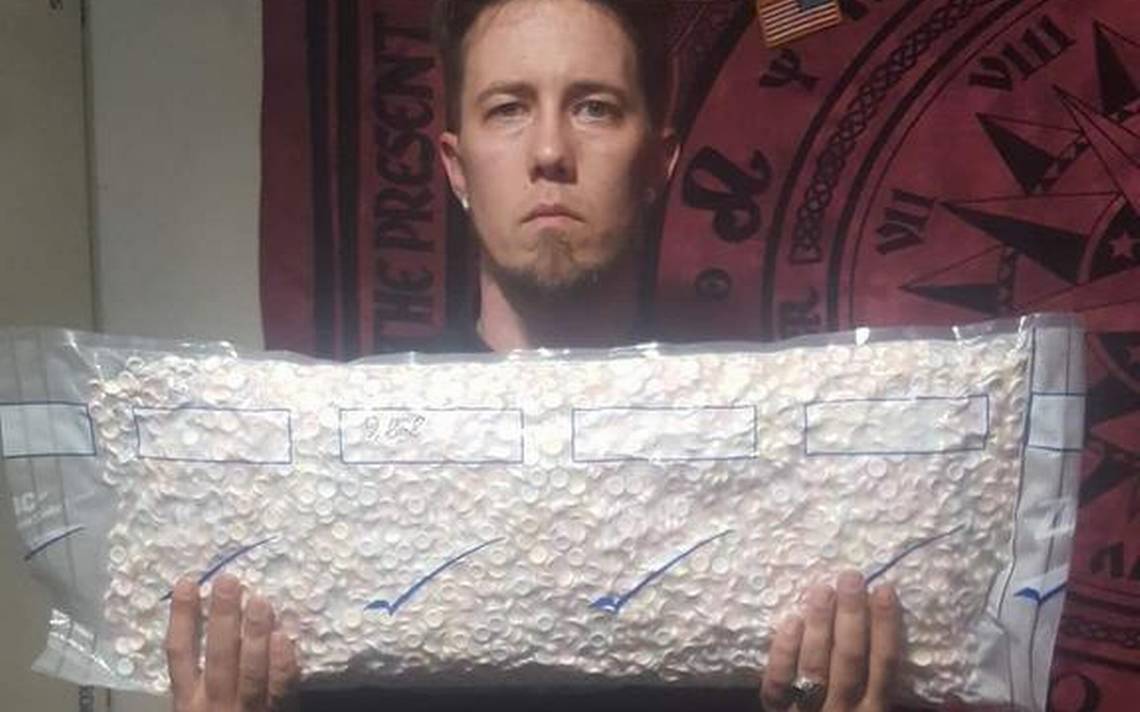One veteran got so frustrated with the number of pills he had been prescribed to take on a daily basis that he decided to create a visual aid. After calculating that he took more than 9,855 prescription pills annually, he got an idea.
Joshua Lee served with the Missouri National Guard from 2007 to 2014, and spent one year in Afghanistan, where he was diagnosed with a mysterious yet painful illness, an inflammation of the hands.
In October 2010, Lee returned home from Afghanistan and began going to the VA for medical treatment—and that is when the script count skyrocketed. He was given 27 different pills to take each day and his weight ballooned. He went from weighing a normal 160 pounds to weighing 220 pounds with a size 40-inch waist in 2017. He said that when someone remarked, “Man! You’ve really let yourself go!” he knew he had a problem.
RELATED STORY:
Last year, Lee and his wife went to Colorado for their 15-year anniversary, and he tried cannabis for pain relief for the first time. He said he began to feel better instantly.
“I went out there with a plan in mind to step-down my medications and I got to experience life again,”Lee said. “My wife held my hand and I got to see the world as beautiful, instead of dangerous any longer.”
After heading back to Missouri from Colorado, Lee said he got an idea, “What would all my medicines look like if I put them all in a pile?” He hunted around a few candy stores and secured enough smarties to represent the number of pills he was given annually. The pile was huge! He vacuum-sealed all of the smarties and put them in a pair of bags to hold them together.
RELATED STORY:
After posting the visual aid to his Facebook page, the image blew up from there, also going viral on Reddit and Imgur. “It’s gone viral at least seven times on Facebook!” he told the Free Thought Project. “That picture has been shared a minimum of 80k times.”
Marijuana is still illegal in Missouri but was decriminalized in January to a misdemeanor and a fine for getting caught with up to 10 grams weed. But Lee says more needs to be done to keep veterans off of lethal opiates and suicide-causing antidepressants. Lee, like many other veterans, claims cannabis can do just that.
The veteran who used to take nearly 10,000 pills per year says his trips to Colorado have allowed him to reduce his prescriptions to just a handful a day.
However, Lee does not want to have to go out of state to treat his illnesses. He believes Missouri veterans deserve to be able to consume cannabis in their own state without fear of being arrested or fined. He is now urging Missourians to vote for access to medical marijuana on Nov. 6, 2018.
“We need access to cannabis, which can save more lives,” Lee said. There are three voter referendum bills on the November ballot but Lee said he believed that at the very least, medical marijuana needs to be permitted in the state.
Once cannabis is legalized, Lee said he wants to go down in Missouri history as being the “Elon Musk of the Cannabis industry.” He wants to help state and local veterans’ organizations and encourage them with funding to do the right thing for veterans. But it all starts with legalizing cannabis across the state.
Lee said he wants to create a philanthropic cannabis organization to give money to groups who are already helping veterans such as Warriors Outdoors, which helps veterans get active in outdoor life and sporting activities.
RELATED STORY:
To those who are skeptical of whether or not cannabis works, Lee invites people to visit www.veteransforaccess.org for more information.
As The Free Thought Project has reported, while the federal government claims to care about the mental health of veterans, it continues to feed them dangerous prescription drugs, while treating them as felons if they choose to use cannabis. President Trump recently signed an executive order that was presented as an effort to improve veterans’ mental health treatment, just days after Attorney General Jeff Sessions announced plans to wage war on their medicine by rescinding a policy that keeps federal prosecutors from aggressively enforcing federal law in states where cannabis is legal.
*Article originally appeared at The Free Thought Project.












